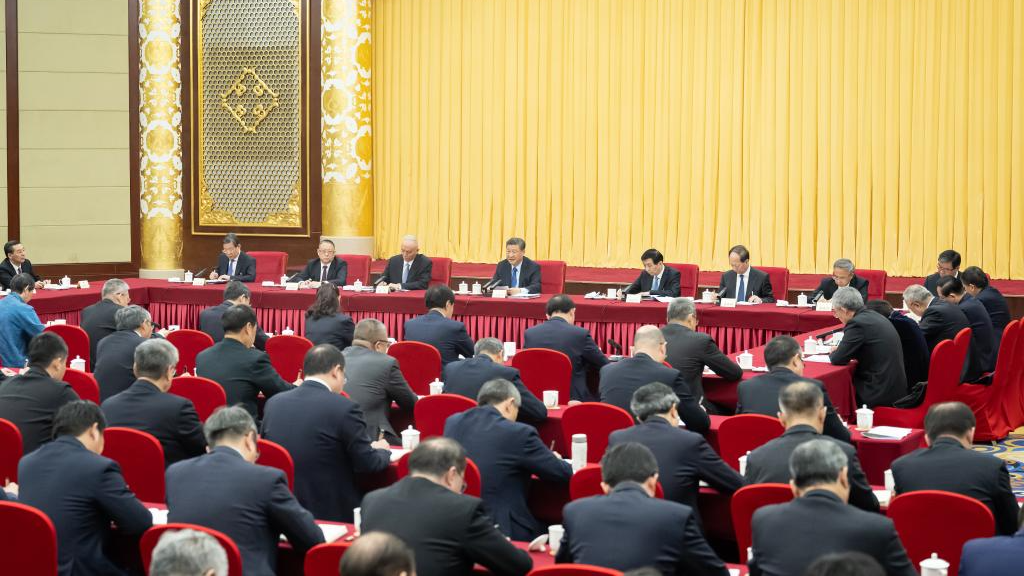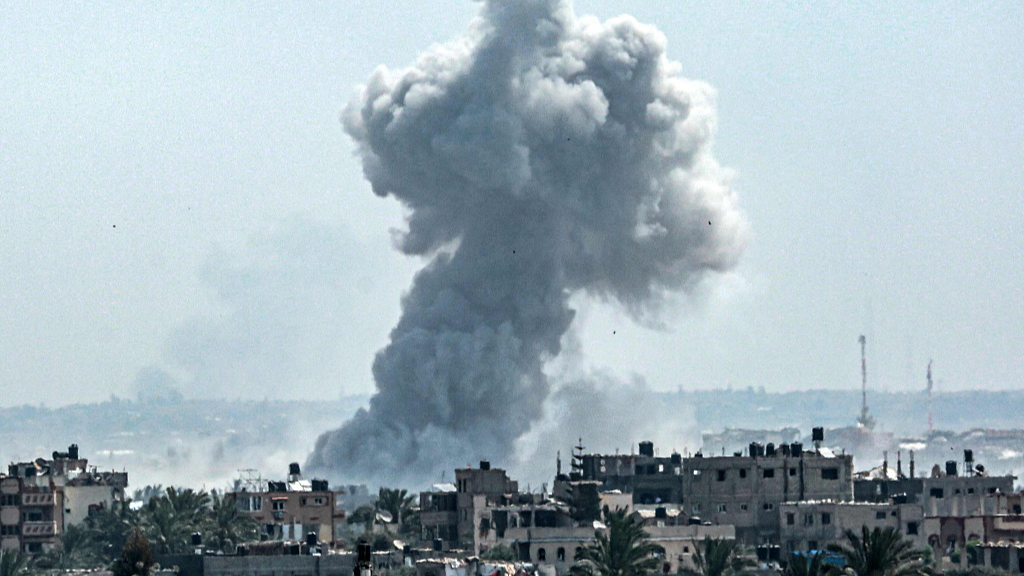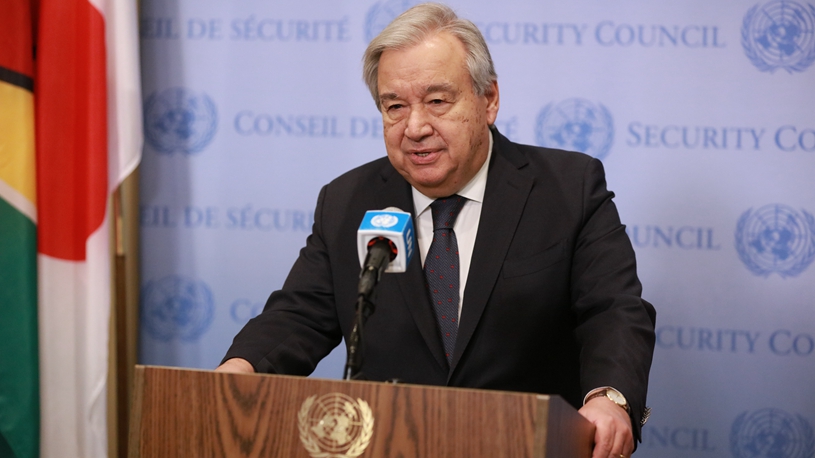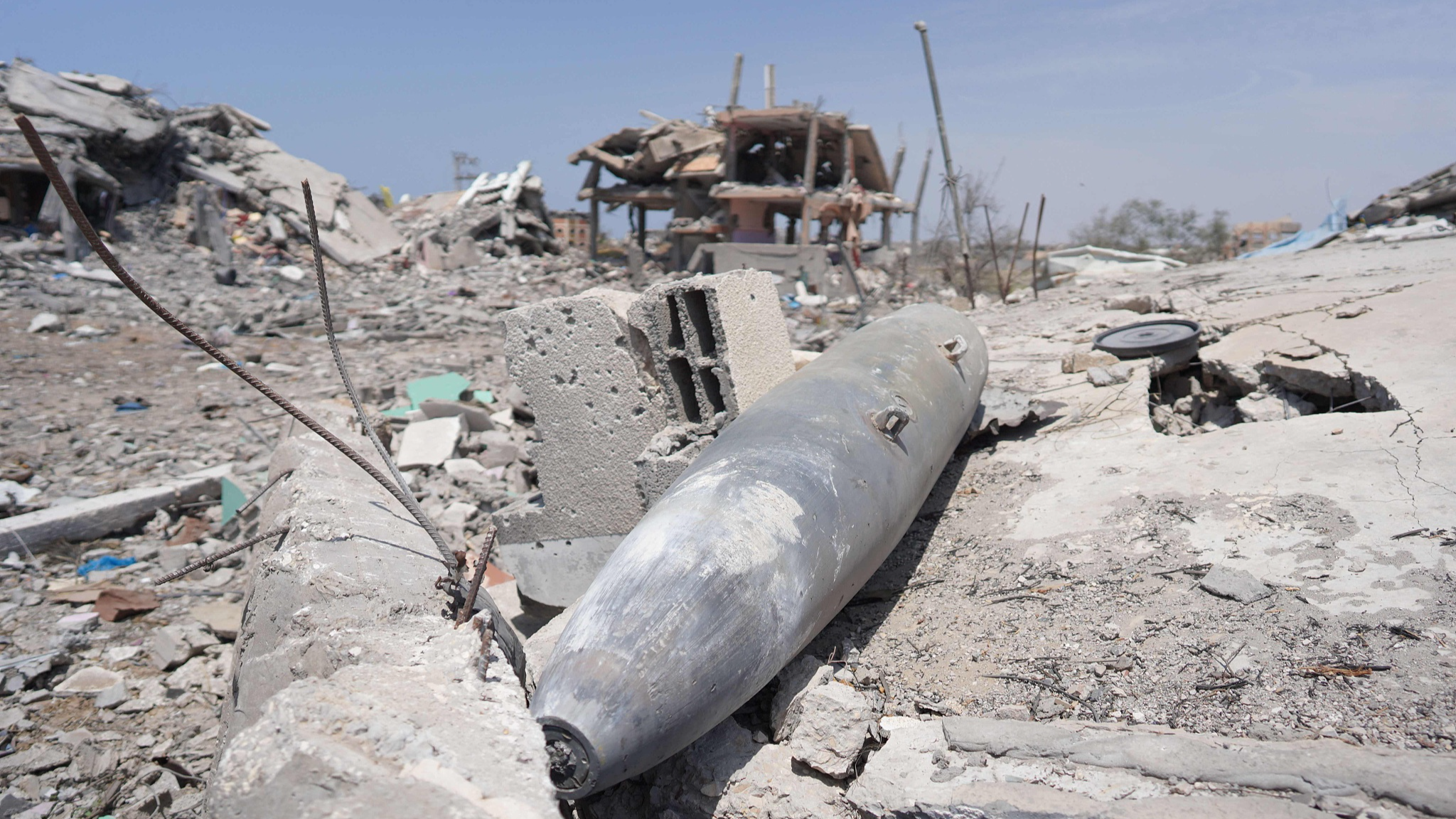Chinese President Xi Jinping has shone more light on the country’s source of confidence for high-quality development by expounding on a wide range of topics at this year’s Two Sessions, a key political event slated to close on Monday.
Xi, also general secretary of the Communist Party of China (CPC) Central Committee and chairman of the Central Military Commission (CMC), joined national legislators in deliberations and participated in discussions with national political advisors at the event, making a raft of remarks on issues including new quality productive forces, environmental protection, overall reform and coordinated regional development.
In this crucial year for fulfilling the objectives and tasks set out in the 14th Five-Year Plan (2021-2025), Xi stressed that efforts must be made to sustain and reinforce the positive momentum of economic recovery, and boost confidence in development across society. Key messages from Xi at the sessions provided insight into the trajectory of the world’s second-largest economy.
New quality productive forces
Xi has stressed developing new quality productive forces amid the country’s accelerated efforts to foster new growth drivers and promote high-quality development.
First put forward by Xi in 2023, the concept was highlighted at a key meeting on economic work last December, and became the subject of a group study session of the CPC leadership this year.
With innovation playing the leading role, new quality productive forces mean advanced productivity that is freed from the traditional economic growth mode and productivity development paths, features high-tech, high efficiency and high quality, and comes in line with the new development philosophy.
Joining his fellow deputies from the delegation of Jiangsu in a deliberation on March 5, Xi underscored the importance of developing new quality productive forces based on local conditions.
Developing new quality productive forces does not mean neglecting or abandoning traditional industries, Xi said, noting that it is necessary to prevent a headlong rush into projects and the formation of industry bubbles, and avoid adopting just a single model of development.
Xi stressed the need to strengthen basic research and basic research in applied sciences, achieve breakthroughs in core technologies in key fields, and foster new drivers for developing new quality productive forces when participating in a joint group meeting attended by national political advisors on March 6.
Citing achievements in transportation as an example, he said that China is a global leader in automobile production and sales, excels in new energy vehicles, boasts the longest expressway network, and has successfully introduced high-speed railways and urban rail transit systems internationally, alongside the development of large aircraft.
Craftsmen are important for these accomplishments, he stressed, calling for enhancing vocational education, fostering a culture of meticulous craftsmanship, and nurturing generations of master craftsmen at the forefront of production.
“The master craftsmen are the backbone. Without a diamond, you can’t handle porcelain,” Xi said.
Attending a plenary meeting of the delegation of the People’s Liberation Army and the People’s Armed Police Force on March 7, he said the drive to accelerate the development of new quality productive forces has provided rare opportunities for the development of strategic capabilities in emerging areas.
He called for enabling new quality productive forces and new quality combat capabilities to effectively integrate with and boost each other.
Deepening overall reform
Reform has been a key word in China over the years.
At the deliberation on March 5, Xi stressed the necessity of planning major measures to further deepen reform on all fronts, so as to continuously inject strong impetus into the endeavor to promote high-quality development and advance Chinese modernization.
To build a high-level socialist market economy, it is imperative to accelerate the improvement of basic systems underpinning the market economy, such as those for property rights protection, market access, fair competition, and social credit, Xi said.
He stressed that it is essential to improve and implement the institutions and mechanisms to unswervingly consolidate and develop the public sector and unswervingly encourage, support and guide the development of the non-public sector, and facilitate the growth of the private sector and private enterprises.
The reform of systems involving science and technology, education and professional personnel should be deepened, and barriers obstructing the development of new quality productive forces should be removed, Xi said, stressing creating a world-class business environment that is market-oriented, law-based and internationalized to foster new strengths for a higher-level open economy.
Environmental protection
“The CPC Central Committee always attaches great importance to environmental protection,” Xi told national political advisors, including those from the sector of environment and resources, on March 6.
He emphasized the need to secure red lines in the development and protection of territorial space, and improve the region-specific environmental management system, so as to further consolidate the ecological foundations of high-quality development.
According to the government work report, China has set a target of reducing its energy consumption per unit of GDP by approximately 2.5 percent this year.
Xi said that efforts must be made to carry out targeted, science-based and lawful pollution control, promote green and low-carbon transition in economic and social development, strengthen conservation, efficient use and recycling of resources, explore more ways to realize the market value of ecological products, and work toward peaking carbon emissions and achieving carbon neutrality.
On the country’s plan to control new pollutants following its treatment of smog and black and malodorous water bodies, Xi said that both newfound and persisting environmental problems need to be addressed.
Common prosperity
Xi considers pursuing common prosperity for all to be an essential feature of Chinese modernization.
The tale of Yonglian Village in east China’s Jiangsu Province, a legendary example of developing township enterprises during China’s reform and opening-up, caught his attention in the deliberation on March 5.
Once a tidal flat area along the Yangtze River, this village boldly established a steel enterprise about 40 years ago and emerged as a nationally renowned prosperous community.
Last year, with total industrial and agricultural revenues reaching 161.6 billion yuan (about $22.77 billion) and a collective operating revenue of 335 million yuan, the village residents enjoyed an average per capita net income of 73,000 yuan.
Listening to a national legislator from the village recount these achievements, Xi praised the village as a pioneer on the path to rural revitalization and common prosperity, urging the villagers to continue their efforts to promote common prosperity.
Coordinated regional development
Since the 18th CPC National Congress in 2012, a series of coordinated regional development strategies have been implemented, including the coordinated development of the Beijing-Tianjin-Hebei region, the integrated development of the Yangtze River Delta, and the integration and coordinated development of the Guangdong-Hong Kong-Macao Greater Bay Area. They are playing an important supporting role in fostering a new development paradigm and promoting high-quality development.
During the deliberation on March 5, Xi said that it is imperative for Jiangsu to fully integrate into and contribute to the development of the Yangtze Economic Belt and the strategy for integrated development of the Yangtze River Delta, urging the major economically developed province to better leverage its strength to drive the development of the whole region and the whole country.
Source(s): CGTN

 Sports6 days ago
Sports6 days ago
 World6 days ago
World6 days ago
 News4 days ago
News4 days ago
 World6 days ago
World6 days ago
 News6 days ago
News6 days ago
 Travel & Culture6 days ago
Travel & Culture6 days ago
 News4 days ago
News4 days ago
 News6 days ago
News6 days ago


















